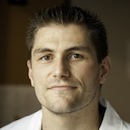Advisory Board and Editors Genetics

Rachel McMullan
Wellcome Trust Career Development Fellow using C. elegans genetics to understand how animals respond to infection. In particular the cross talk between nervous and immune systems that coordinates behavioural and cellular responses to infection. Member of the Genetics society and British Society for Cell Biology.

Laurent Metzinger
Laurent Metzinger has completed his PhD in Biological Sciences and Pharmaceutical studies in Strasbourg, France and was a postdoctoral fellow from the University of Oxford (UK) in a leading lab on Duchenne muscular Dystrophy (Pr. Kay Davies). He works on microRNA regulation in the HEMATIM team in Amiens, and focuses on anemia and related vascular disorders associated with Chronic Kidney DIsease. He has authored some of the first papers showing a role for microRNAs in CKD and published in reputed journals, including Nature and Cell. He teaches Biochemistry, Genetics and Molecular Biology in the Pharmacy School of Amiens (Université de Picardie Jules Verne).

David Meyre
David Meyre completed a PhD in quantitative plant genetics in France. Since 2001, he has been working on the elucidation of the genetic bases of obesity and type 2 diabetes. In 2004, he published the first family-based genome-wide scans for childhood and severe adult obesity. He completed the two first successful positional cloning efforts for childhood and severe adult obesity, which identified the positional candidate genes ENPP1 and PCSK1. In 2007, he contributed to the identification of the major susceptibility gene for polygenic obesity FTO. In 2009, he published the first genome-wide association study of extreme obesity in the French population and identified four novel susceptibility-loci. In 2010, he conducted the first genome-wide association meta-analysis for early-onset extreme obesity in German and French populations. In 2012, he identified the third more common form of monogenic obesity (PCSK1 partial deficiency) and demonstrated an important role of the lipid sensor GPR120 in human obesity. He also discovered the first molecular link between obesity and major depression. In 2013, he discovered a novel gene (SIM1) responsible for a syndromic Mendelian form of childhood obesity. In 2016, he discovered that physical activity can blunt the effect of the obesity predisposing gene FTO in diverse ethnic groups. He also demonstrated that genes can predict the outcomes of different types of bariatric surgery.

Alexander S Mikheyev
I am principally interested in how ecological forces shape genomic evolution. To do this I have been taking advantage of ongoing developments in sequencing technology. I try to remain on the cutting edge of this fast-moving field by developing new molecular and analytical methods for sequencing, with a particular focus on degraded DNA, such as in museum specimens. I choose study organisms for their suitability to the project at hand, and have worked on everything from microorganisms, to insects to snakes. Despite this diversity, much of my work has focused on the biology of social insects, and they remain a personal passion.

Thimios A Mitsiadis
Professor of Oral Biology in the Medical Faculty at the University of Zurich, Switzerland since 2006. Research in the fields of stem cells, genetics, molecular and experimental biology related to orofacial developmental and regeneration processes.
DDS degree from the Dental Faculty of the Kapodistrion University of Athens (Greece), Master degree for Immunology, Genetics and Differentiation, and PhD in Developmental Biology from the University of Lyon (France). Postdoctoral studies at the University of Helsinki (Finland), Karolinksa Nobel Institute (Stockholm, Sweden) and Yale University (USA). Previously Professor at the Mediterranean University (Marseilles, France), Visiting Professor at the Ecole Normale Superieure of Lyon (France), Clinical Senior Lecturer at King's College London (UK), Visiting Professor at the Polytechnic University of Marche (Ancona, Italy), Visiting Professor at the Second University of Napoli (Napoli, Italy). Chief-Editor of the “Frontiers of Craniofacial Biology and Dental Research”, Associate Editor of “Stem Cell Research”, Scientific Editor of “European Cells & Materials”, and part of the editorial board in additional 8 scientific journals. More than 110 original articles in journals such as “Journal of Cell Biology”, “Development”, “Developmental Biology”, “Nature Genetics”, “Science Signaling”, “Scientific Reports”, “Frontiers in Physiology” and more than 200 keynote and invited lectures.

Katherine Mitsouras
Katherine received her Bachelor's degree in Biochemistry and Molecular Biology from Brown University and her PhD in Biological Chemistry from the Geffen School of Medicine at UCLA. She subsequently trained in microarray technology development at Dr Stan Nelson's lab in the Department of Human Genetics at UCLA and collaborated with Agilent Technologies to develop microarrays to detect tissue-specific alternative splicing events in humans. Since 2007 she has been an Assistant, then Associate Professor of Biochemistry at Western University of Health Sciences.

Alessandra Montecucco
Alessandra Montecucco heads a laboratory of the Unit of Molecular and Cellular Biology of the Nucleus at the Institute of Molecular Genetics (IGM) of the Italian National Research Council (CNR). Her research activity is focused on the cellular response to DNA damage and genome integrity.

Héctor Manuel Mora-Montes
In 2010, I established the Laboratory of Fungal Glycobiology at Universidad de Guanajuato, Mexico, with the main goal to understand the synthesis mechanisms of the fungal cell wall and the interaction of medically relevant fungal pathogens with the host. This laboratory is characterized by its facilities to perform chemical, immunological, genetic, molecular, and cellular analyses of human fungal pathogens. Therefore, it is among a handful of research facilities within Mexico and Latin America offering a multidisciplinary and integral approach to understand the host-fungus interaction. Our group has a solid international reputation in the molecular and immunological studies of organisms belonging to the genus Candida and Sporothrix.

Boyd A Mori
Assistant Professor of Agricultural and Ecological Entomology in the Department of Agricultural, Food and Nutritional Science, University of Alberta.
Research in our lab focuses on varying aspects of insects in agricultural systems. Our focal areas of research include chemical ecology, population genetics, and insect-plant interactions. We use a variety of techniques from field and laboratory bioassays to transcriptomics and genomics to examine basic and applied ecological questions.

Kirankumar S. Mysore
Professor of Plant Biology at the Samuel Roberts Noble Foundation, Ardmore, OK, USA. Adjunct professor at the Department of Entomology and Plant Pathology, Oklahoma State University, Stillwater, OK.

Sushma Naithani
Sushma Naithani is an Associate Professor Senior Research in the Department of Botany and Plant Pathology at Oregon State University, USA. The current focus of her research is on understanding information flow in living systems and how evolution shapes this flow using systems-level pathway modeling supported by high-quality biocuration, gene-orthology-based predictions, and analysis of omics data. She serves as a senior curator for the Plant Reactome knowledgebase. Sushma has authored 31 peer-reviewed refereed research articles in high-impact journals, including Nature, Nature Biotech, PNAS, etc. One of her research papers has been selected by the 'Faculty of 1000 Biology'. In addition, she has authored six book chapters and one Open Textbook (S. Naithani (2021): History and Science of Cultivated Plants published by Oregon State University Open Educational Resources, EBOOK ISBN: 978-1-955101-08-0, available at https://open.oregonstate.education/cultivatedplants). She is also an Associate Editor for Frontiers in Plant Science-Plant Biotechnology and served as the Editor-in-chief of the Current Plant Biology (2017-2023).

Irene L.G. Newton
Assistant Professor of Biology in the Microbiology section. Woodrow Wilson Foundation Fellow, Andrew Mellon fellow, and advisor to the Social Science Research Counsel, former Howard Hughes Medical Institute Predoctoral Fellow and former NSF postdoctoral fellow.

